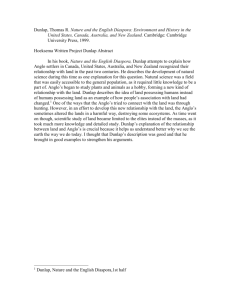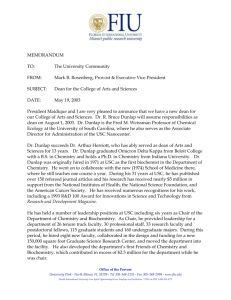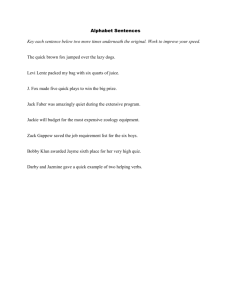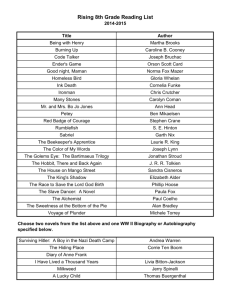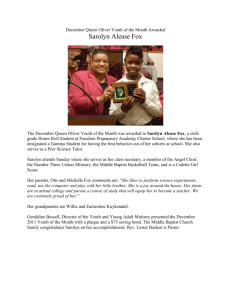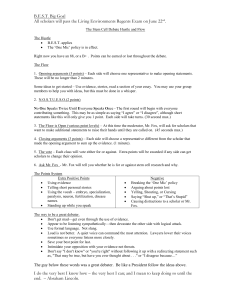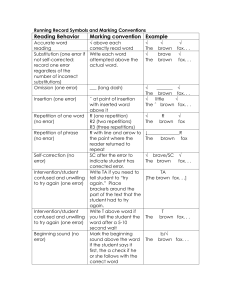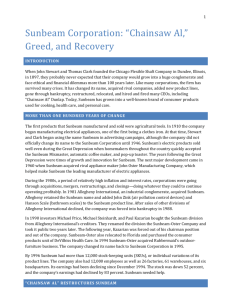resources on this approach
advertisement
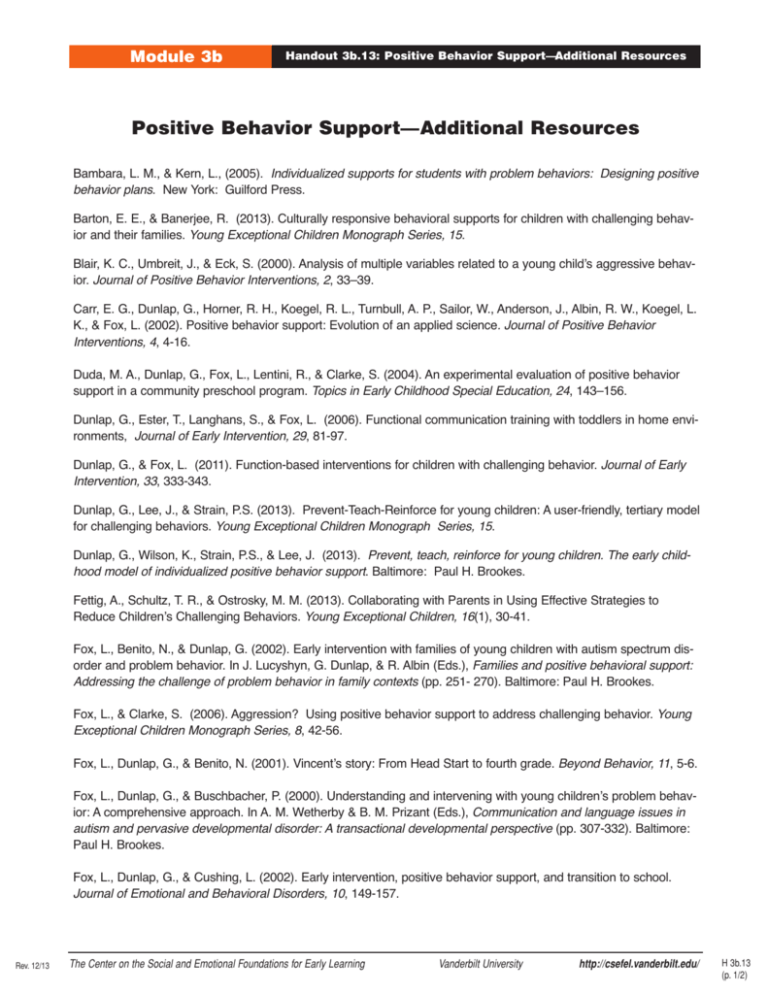
Module 3b Handout 3b.13: Positive Behavior Support—Additional Resources Positive Behavior Support—Additional Resources Bambara, L. M., & Kern, L., (2005). Individualized supports for students with problem behaviors: Designing positive behavior plans. New York: Guilford Press. Barton, E. E., & Banerjee, R. (2013). Culturally responsive behavioral supports for children with challenging behavior and their families. Young Exceptional Children Monograph Series, 15. Blair, K. C., Umbreit, J., & Eck, S. (2000). Analysis of multiple variables related to a young child’s aggressive behavior. Journal of Positive Behavior Interventions, 2, 33–39. Carr, E. G., Dunlap, G., Horner, R. H., Koegel, R. L., Turnbull, A. P., Sailor, W., Anderson, J., Albin, R. W., Koegel, L. K., & Fox, L. (2002). Positive behavior support: Evolution of an applied science. Journal of Positive Behavior Interventions, 4, 4-16. Duda, M. A., Dunlap, G., Fox, L., Lentini, R., & Clarke, S. (2004). An experimental evaluation of positive behavior support in a community preschool program. Topics in Early Childhood Special Education, 24, 143–156. Dunlap, G., Ester, T., Langhans, S., & Fox, L. (2006). Functional communication training with toddlers in home environments, Journal of Early Intervention, 29, 81-97. Dunlap, G., & Fox, L. (2011). Function-based interventions for children with challenging behavior. Journal of Early Intervention, 33, 333-343. Dunlap, G., Lee, J., & Strain, P.S. (2013). Prevent-Teach-Reinforce for young children: A user-friendly, tertiary model for challenging behaviors. Young Exceptional Children Monograph Series, 15. Dunlap, G., Wilson, K., Strain, P.S., & Lee, J. (2013). Prevent, teach, reinforce for young children. The early childhood model of individualized positive behavior support. Baltimore: Paul H. Brookes. Fettig, A., Schultz, T. R., & Ostrosky, M. M. (2013). Collaborating with Parents in Using Effective Strategies to Reduce Children’s Challenging Behaviors. Young Exceptional Children, 16(1), 30-41. Fox, L., Benito, N., & Dunlap, G. (2002). Early intervention with families of young children with autism spectrum disorder and problem behavior. In J. Lucyshyn, G. Dunlap, & R. Albin (Eds.), Families and positive behavioral support: Addressing the challenge of problem behavior in family contexts (pp. 251- 270). Baltimore: Paul H. Brookes. Fox, L., & Clarke, S. (2006). Aggression? Using positive behavior support to address challenging behavior. Young Exceptional Children Monograph Series, 8, 42-56. Fox, L., Dunlap, G., & Benito, N. (2001). Vincent’s story: From Head Start to fourth grade. Beyond Behavior, 11, 5-6. Fox, L., Dunlap, G., & Buschbacher, P. (2000). Understanding and intervening with young children’s problem behavior: A comprehensive approach. In A. M. Wetherby & B. M. Prizant (Eds.), Communication and language issues in autism and pervasive developmental disorder: A transactional developmental perspective (pp. 307-332). Baltimore: Paul H. Brookes. Fox, L., Dunlap, G., & Cushing, L. (2002). Early intervention, positive behavior support, and transition to school. Journal of Emotional and Behavioral Disorders, 10, 149-157. Rev. 12/13 The Center on the Social and Emotional Foundations for Early Learning Vanderbilt University http://csefel.vanderbilt.edu/ H 3b.13 (p. 1/2) Module 3b Handout 3b.13: Positive Behavior Support—Additional Resources Fox, L., Dunlap, G., Hemmeter, M. L., Joseph, G. E., & Strain, P. S. (2003). The teaching pyramid: A model for supporting social competence and preventing challenging behavior in young children. Young Children, 58(4), 48-52. Fox, L., Dunlap, G., & Powell, D. (2002). Young children with challenging behavior: Issues and considerations for behavior support. Journal of Positive Behavior Interventions, 4, 208-217. Frea, W. D., Arnold, C. L., & Vittimberga, G. L. (2001). A demonstration of the effects of augmentative communication on the extreme aggressive behavior of a child with Autism within an integrated preschool setting. Journal of Positive Behavior Interventions, 3(4), 194-198. Gettinger, M., & Stoiber, K. C. (2006). Functional assessment, collaboration, and evidence-based treatment: Analysis of a team approach for addressing challenging behaviors in young children. Journal of School Psychology, 44, 231–252. Harrower, J. K., Fox, L., Dunlap, G., & Kincaid, D. (2000). Functional assessment and comprehensive early intervention. Exceptionalities, 8, 189-204. Hemmeter, M. L., Ostrosky, M. M., & Corso, R. M. (2011). Preventing and Addressing Challenging Behavior: Common Questions and Practical Strategies. Young Exceptional Children. 15(2) 32-46 Horner, R. H., Carr, E. G., Strain, P. S., Todd, A. W., and Reed, H. K. (2002). Problem behavior interventions for young children with Autism: A research synthesis. Journal of Autism and Developmental Disorders, 32, 423-446 Lucyshyn, J. M., Dunlap, G., & Albin, R. W. (2002). Families and positive behavior support. Baltimore: Paul H. Brookes. McCormick, K. M., Jolivette, K., & Ridgley, R. (2003). Choice making as an intervention strategy for young children. Young Exceptional Children, 6(2), 3-10. McLaren, E. M., & Nelson, C. M. (2009). Using functional behavior assessment to develop behavior interventions for children in Head Start. Journal of Positive Behavior Interventions, 11, 3-21. Nahgahgwon, K. N., Umbreit, J., Liaupsin, C. J., & Turton, A. M. (2010). Function-based planning for young children at risk for emotional and behavioral disorders. Education and Treatment of Children, 33(4), 537-559. Wood, B. K., Ferro, J. B., Umbreit, J., & Liaupsin, C. J. (2011). Addressing the challenging behavior of young children through systematic function-based intervention. Topics in Early Childhood Special Education, 30, 221-232. Web Sites on Positive Behavior Support http://www.challengingbehavior.org http://csefel.vanderbilt.edu/resources/strategies.html http://www.pbis.org http://www.apbs.org/ http://www.uoregon.edu/~ttobin/ Rev. 12/13 The Center on the Social and Emotional Foundations for Early Learning Vanderbilt University http://csefel.vanderbilt.edu/ H 3b.13 (P. 2/2)
